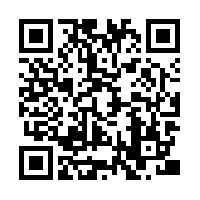
My coworkers enjoy pointing out QR codes to me and watching as my soul dies just a little. In a friendly way.
I try not to be an irrational hater, so when I start hating on something like QR codes, I spend a lot of time thinking about whether my intuitive reaction is actually valid. I've been hating QR codes for a long time, so I've had a lot of time to reflect on why they are, rationally, the worst thing ever.
The problem QR codes are trying to solve is getting people to a web page when they're not already using the web. For example, you're walking down the street and you see a giant billboard that wants you to check out http://wtfqrcodes.com/. You don't want to stop and type that address in your mobile browser. Wouldn't it be cool if you could just point your camera at the billboard and say "take me there"? That's what QR codes do.
But QR codes solve this problem in a monumentally bad way. It's so bad that it's actually useful to understand what went wrong, so we can avoid solving problems so terribly.
The first thing QR codes did wrong was solve a temporary problem. We don't actually need QR codes to point a camera at website address and go there. We have the technology to pull text out of photos as well as the technology to find URLs in text. What we don't have is widespread application of these technologies in mobile browsers. But we will eventually, so why build an elaborate system that is nothing more than a stopgap?
The temporary solution might only be a waste of everyone's time, but QR codes took it a step further and created a permanent solution to this temporary problem. The QR codes being printed today will be adding visual pollution to our lives long after they're relevant, in some cases even after the URLs they represent are relevant.
But the biggest thing QR codes did wrong was building for machine interfaces at the expense of human interaction. People can't read QR codes, but using them requires people to be involved. This effectively forces confusion onto people. The design of QR codes was so focused on the technology that it created a totally broken user experience.
After years of hating on QR codes, I recently learned about one thing they actually do well. Because QR codes can be read (by machines) at a wider variety of angles than text, they're better for reading something when you don't know where it is. For visually impaired people, QR codes actually make sense. They don't cause any confusion, because they're never seen, and they have increased readability for machines in ways that don't assume technology won't improve.
And that's exactly how QR codes should have worked for everyone. A system designed for machines should be invisible to people, it should be equally valuable to tomorrow's machines as today's, and it should be easily removed as soon as it becomes irrelevant. QR codes fail on each count, but that's not even why I hate them.
The real reason I hate QR codes is that I am part of the industry that created them, so I'm partially responsible for this failure. And with that in mind, I actually kind of like when QR codes are pointed out to me by people who know I hate them. It's a good reminder that I should avoid repeating these mistakes.
Mobile
Usability
User Experience
Skip to footer
Comments